In Focus This Week
An Update on the Caltech Election Integrity Project
Elections research continues in 2025 with focus on AI in Elections
By R. Michael Alvarez, PhD
Flintridge Foundation Professor of Political and Computational Social Science, Caltech
Co-Director, Linde Center for Science, Society, and Policy at Caltech
Co-Director, Caltech/MIT Voting Technology Project
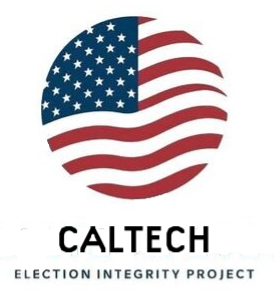 It’s hard to believe that we are almost halfway through 2025 and that it has been almost a year since the team at the Linde Center for Science, Society, and Policy at Caltech (LCSSP) officially launched The Caltech Election Integrity Project back in July 2024 with my last by-line in electionlineWeekly.
It’s hard to believe that we are almost halfway through 2025 and that it has been almost a year since the team at the Linde Center for Science, Society, and Policy at Caltech (LCSSP) officially launched The Caltech Election Integrity Project back in July 2024 with my last by-line in electionlineWeekly.
We originally intended for this program to conclude next month, but we have extended our research and dissemination of findings through at least the end of 2025 so that we can further engage with election practitioners and other election community stakeholders.
This engagement includes the upcoming October 16-17, 2025 conference – Protecting the Election: AI and Governance – that I’m co-organizing with my colleague Betsy Sinclair, PhD, Assistant Vice Provost of Digital Transformations, Thomas F. Eagleton University Professor of Public Affairs and Political Science, and Chair of the Political Science Department at Washington University (WashU), who is hosting the event on campus at WashU.
 We’ll get into more on the upcoming conference later at the close of this article, but it is the resulting follow-up meeting to our very successful and well-attended Information and Misinformation in Elections Conference held online January 16-17, 2025. Conference topics were focused on the 2024 election and included how campaigns used innovative new approaches to target and persuade voters, how social media influenced voters, what the electorate knew (or did not know) about the candidates and issues, misinformation in the election, election rumors and denialism, rhetoric about election integrity, disinformation dissemination and impact on the election, conspiracy theories regarding the candidates and the administration of the election, and practitioner experiences with misinformation in recent elections. This conference, also co-organized with Professor Sinclair, and sponsored by the LCSSP, was scheduled to take place on-campus at Caltech. Unfortunately, the wildfires of Southern California, and specifically the Eaton Fire that struck Pasadena less than a week before our conference, had widespread and serious effects on the City of Pasadena, Caltech, Caltech’s students, faculty, and staff, and our local infrastructure. Out of an abundance of caution and concern for our many traveling participants given the wildfire situation throughout Southern California, we quickly converted our conference to an entirely virtual event. We re-opened registration and over 300 participants attended our event, over three times the number who were scheduled to attend
We’ll get into more on the upcoming conference later at the close of this article, but it is the resulting follow-up meeting to our very successful and well-attended Information and Misinformation in Elections Conference held online January 16-17, 2025. Conference topics were focused on the 2024 election and included how campaigns used innovative new approaches to target and persuade voters, how social media influenced voters, what the electorate knew (or did not know) about the candidates and issues, misinformation in the election, election rumors and denialism, rhetoric about election integrity, disinformation dissemination and impact on the election, conspiracy theories regarding the candidates and the administration of the election, and practitioner experiences with misinformation in recent elections. This conference, also co-organized with Professor Sinclair, and sponsored by the LCSSP, was scheduled to take place on-campus at Caltech. Unfortunately, the wildfires of Southern California, and specifically the Eaton Fire that struck Pasadena less than a week before our conference, had widespread and serious effects on the City of Pasadena, Caltech, Caltech’s students, faculty, and staff, and our local infrastructure. Out of an abundance of caution and concern for our many traveling participants given the wildfire situation throughout Southern California, we quickly converted our conference to an entirely virtual event. We re-opened registration and over 300 participants attended our event, over three times the number who were scheduled to attend  in-person. This was a small upside to the devastating tragedy, but it told us there was a strong need to continue the conversations had during this virtual event.
in-person. This was a small upside to the devastating tragedy, but it told us there was a strong need to continue the conversations had during this virtual event.
In addition to our paper presenters and modified virtual poster presenters (who are all listed on the conference website, we welcomed several speakers including three U.S. Election Assistance Commissioners, keynote speakers Lynn Vavreck, Charles Stewart,III, and Stephan Lewandowsky, and a panel of practitioners featuring California local election officials Natalie Adona, Tommy Gong, Dean Logan, and Bob Page, California Voter Foundation Executive Director Kim Alexander, former local election official Tina Barton and election technology provider representative Ed Smith. If you were unable to attend, the recordings from the event can be viewed on our conference YouTube channel, and any slideshows, papers, or posters presented are also linked on our conference website.
This brings us back to the topic of the upcoming Protecting the Election: AI & Governance Conference at WashU on October 16-17 that I introduced above.
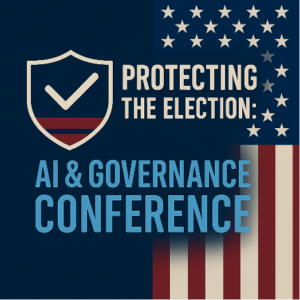 We will hear from practitioners during the conference about their experiences with AI in recent elections. Two speakers who have been confirmed to join us at WashU are former Washington Secretary of State Kim Wyman, President of ESI Consulting, Senior Fellow at the Bipartisan Policy Center, and Former Senior Election Security Advisor at CISA, and Brianna Lennon, County Clerk in Boone County, Missouri and co-host of the High Turnout – Wide Margins podcast.
We will hear from practitioners during the conference about their experiences with AI in recent elections. Two speakers who have been confirmed to join us at WashU are former Washington Secretary of State Kim Wyman, President of ESI Consulting, Senior Fellow at the Bipartisan Policy Center, and Former Senior Election Security Advisor at CISA, and Brianna Lennon, County Clerk in Boone County, Missouri and co-host of the High Turnout – Wide Margins podcast.
Continuing the objective we established in our January conference, in October at WashU we will bring academic and industry experts, to learn from the latest research on how AI is altering election administration and election practice worldwide. The WashU conference will also focus on building collaborations and connections, between election officials and researchers, to help build useful and practical AI-enabled solutions to improve election administration and democratic discourse in upcoming elections.
Yesterday, Professor Sinclair’s team at the WashU Department of Political Science officially launched our conference website where we announced our Call for Papers, Posters and Panels. We are currently accepting paper, poster, and panel proposals that address the following research topics:
- How chatbots can be used to engage with voters
- How social media influences voters
- What the electorate knew (or did not know) about the candidates and issues during recent elections
- Misinformation in elections
- Rhetoric about election integrity
- AI strategies for the administration of elections
These proposals should be a maximum of 250 words and be submitted to lcssp@hss.caltech.edu by July 15, 2025. We expect to announce decisions no later than September 1, 2025.
Stay tuned to the conference website for regular updates. You can also listen to a wonderful, informative conversation about this event on yesterday’s edition of my Election Science Office Hours webinar where Betsy Sinclair joined me to discuss the conference in addition to AI in elections more broadly, and her other research interests and work at WashU.
I’ll wrap up this update by plugging Election Science Office Hours which was originally scheduled to run through the November 2024 election. However, it has been so well received (and so much fun!) that we are continuing these thanks to the fantastic guests – a variety of members of the elections community – with whom I have had the privilege of hosting for 16 segments and counting. We have also turned Election Science Office Hours into a podcast that is available on Spotify and Apple Podcasts, so for those of you looking for something engaging to listen to while running, gardening, or reading email, look no further!
Please continue to visit our Caltech Election Integrity Project website – where we will continue to share updates on our work as we head into the October conference and the 2026 election cycle. Stay tuned and please reach out to us at lcssp@hss.caltech.edu with any questions!
electionline Daily News Email
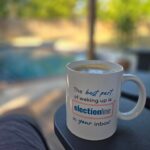 What’s the best part of waking up? electionline Daily News in your inbox of course so be sure to sign up for your daily dose.
What’s the best part of waking up? electionline Daily News in your inbox of course so be sure to sign up for your daily dose.
Each morning you’ll receive the top headlines of the day, plus a listing of states featured in that day’s news round up.
To sign up, simply visit our site and provide us with your email and you’ll begin receiving the news in your inbox each morning.
We Google so you don’t have to!
Election News This Week
 Federal Update: Back in 2021, President Joe Biden signed Executive Order 14019 giving federal employees up to four hours of paid time off in order to vote and serve as nonpartisan poll workers. In 2022, the Office of Personnel Management issued guidance requiring agencies to provide federal employees with up to four hours of administrative leave to vote in federal, state, local, tribal, and territorial elections. Additionally, OPM clarified that employees could also use up to four hours of administrative leave per year to serve as a non-partisan poll worker or observer. In March of 2025, President Donald Trump signed Executive Order 14248 revoking the paid time off. According to an article in Government Executive, agencies have begun notifying federal workers about the new policy. “Effective immediately, Forest Service employees are not authorized to use administrative leave to vote or participate in voting related activities,” said a message received by employees and obtained by Government Executive. Other USDA employees reported being told verbally they could no longer use that form of paid time off for voting. The Interior Department has apparently removed implementation guidance on the leave-for-voting policy from its website. The Forest Service told employees they are still allowed to request taking their own personal vacation time for voting purposes. According to PR Week, the U.S. Election Assistance Commission has canceled a solicitation seeking PR firms to provide comprehensive communications services. The agency search was canceled this month because the sole contracting officer is no longer working for the federal agency, according to solicitation documents from the government. There is no longer a “warranted contracting officer at the agency to process this procurement” as of May 12, the federal government said. The contract was set to run for one year, starting on September 1, according to solicitation documents, which did not include a budget. The contract sought PR and communications services in three sections: strategic media services, foundational collateral and content and social media. The RFP was released on April 24.
Federal Update: Back in 2021, President Joe Biden signed Executive Order 14019 giving federal employees up to four hours of paid time off in order to vote and serve as nonpartisan poll workers. In 2022, the Office of Personnel Management issued guidance requiring agencies to provide federal employees with up to four hours of administrative leave to vote in federal, state, local, tribal, and territorial elections. Additionally, OPM clarified that employees could also use up to four hours of administrative leave per year to serve as a non-partisan poll worker or observer. In March of 2025, President Donald Trump signed Executive Order 14248 revoking the paid time off. According to an article in Government Executive, agencies have begun notifying federal workers about the new policy. “Effective immediately, Forest Service employees are not authorized to use administrative leave to vote or participate in voting related activities,” said a message received by employees and obtained by Government Executive. Other USDA employees reported being told verbally they could no longer use that form of paid time off for voting. The Interior Department has apparently removed implementation guidance on the leave-for-voting policy from its website. The Forest Service told employees they are still allowed to request taking their own personal vacation time for voting purposes. According to PR Week, the U.S. Election Assistance Commission has canceled a solicitation seeking PR firms to provide comprehensive communications services. The agency search was canceled this month because the sole contracting officer is no longer working for the federal agency, according to solicitation documents from the government. There is no longer a “warranted contracting officer at the agency to process this procurement” as of May 12, the federal government said. The contract was set to run for one year, starting on September 1, according to solicitation documents, which did not include a budget. The contract sought PR and communications services in three sections: strategic media services, foundational collateral and content and social media. The RFP was released on April 24.
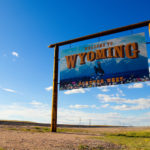 News From Wyoming: County clerks in Wyoming have been at odds with state and political officials over a variety of issues the past couple of years and two of those issues resolved themselves this past week. In Laramie County, the clerk’s office and the Wyoming Republican Party have settled a ten month long lawsuit filed against Clerk Debra Lee challenging the testing of the county’s election equipment used in the August 2024 primary. Lee told the Wyoming Tribune Eagle the county chose to settle because the litigation cost over $50,000 taxpayer dollars and hundreds of Laramie County Clerk staff hours. “When the Wyoming GOP offered to settle the complaint days before the hearing, we reluctantly agreed in order to put an end to this matter and not incur additional cost to taxpayers. The settlement included allowing three individuals — none of whom were from Laramie County — and a self-proclaimed ‘expert’ from out of state — to inspect documents previously offered by the Clerk’s office on several occasions, beginning as early as last September.” In Weston County, Gov. Mark Gordon said Clerk Becky Hadlock’s actions in the 2024 election did not meet the requirements for him to seek her removal from office, according to the governor’s review of formal complaints filed against the clerk late last year. An error by Hadlock caused an initial ballot miscount in her county’s results. Eight local qualified electors submitted a complaint to the governor’s office in December, asking him to begin the process laid out in state statute for removing a county official from office. “Although I recognize that Clerk Hadlock made many serious mistakes in the 2024 Weston County elections, her actions do not rise to the level of misconduct or malfeasance, as I understand the meaning of those terms in this situation,” Gordon wrote in his decision, which was released last week. “I do not believe there is a clear path to proving guilt.”
News From Wyoming: County clerks in Wyoming have been at odds with state and political officials over a variety of issues the past couple of years and two of those issues resolved themselves this past week. In Laramie County, the clerk’s office and the Wyoming Republican Party have settled a ten month long lawsuit filed against Clerk Debra Lee challenging the testing of the county’s election equipment used in the August 2024 primary. Lee told the Wyoming Tribune Eagle the county chose to settle because the litigation cost over $50,000 taxpayer dollars and hundreds of Laramie County Clerk staff hours. “When the Wyoming GOP offered to settle the complaint days before the hearing, we reluctantly agreed in order to put an end to this matter and not incur additional cost to taxpayers. The settlement included allowing three individuals — none of whom were from Laramie County — and a self-proclaimed ‘expert’ from out of state — to inspect documents previously offered by the Clerk’s office on several occasions, beginning as early as last September.” In Weston County, Gov. Mark Gordon said Clerk Becky Hadlock’s actions in the 2024 election did not meet the requirements for him to seek her removal from office, according to the governor’s review of formal complaints filed against the clerk late last year. An error by Hadlock caused an initial ballot miscount in her county’s results. Eight local qualified electors submitted a complaint to the governor’s office in December, asking him to begin the process laid out in state statute for removing a county official from office. “Although I recognize that Clerk Hadlock made many serious mistakes in the 2024 Weston County elections, her actions do not rise to the level of misconduct or malfeasance, as I understand the meaning of those terms in this situation,” Gordon wrote in his decision, which was released last week. “I do not believe there is a clear path to proving guilt.”
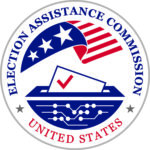 News from the EAC: On May 27, the Commissioners of the U.S. Election Assistance Commission unanimously approved a policy formally affirming the agency’s support for voting systems that are auditable and software-independent. This policy recommends election offices use voting systems that have a paper record of every vote, such as paper ballots, which already applies to systems in more than 98% of jurisdictions. EAC Chairman Donald Palmer, Vice Chair Thomas Hicks, Commissioner Christy McCormick, and Commissioner Ben Hovland issued the following statement: “We recognize the importance of producing a paper trail for voting systems to enhance election verifiability, audit functions, and voter confidence. While most jurisdictions already use voting systems that produce a paper record of every vote, the EAC has adopted this policy to encourage the few remaining election offices to follow their lead. “States and localities select their own voting systems; however, auditable and software-independent voting systems are necessary to safeguard our nation’s elections. The agency’s newly adopted Voluntary Voting System Guidelines (VVSG 2.0) upholds this policy and requires the use of paper ballots in voting systems for certification. All voters, including those with disabilities, have the right to cast a ballot privately and independently. Accessibility remains a priority for the EAC, and this policy will not prevent voters with disabilities from exercising their right to cast a ballot. This action is part of the EAC’s congressional mandate to ensure elections are safe, secure, accurate, and accessible.” Nothing in the new policy is intended to contradict the accessibility provisions of Section 301 of the Help America Vote Act of 2002 or any other accessibility provisions required by law. The full policy is available at eac.gov.
News from the EAC: On May 27, the Commissioners of the U.S. Election Assistance Commission unanimously approved a policy formally affirming the agency’s support for voting systems that are auditable and software-independent. This policy recommends election offices use voting systems that have a paper record of every vote, such as paper ballots, which already applies to systems in more than 98% of jurisdictions. EAC Chairman Donald Palmer, Vice Chair Thomas Hicks, Commissioner Christy McCormick, and Commissioner Ben Hovland issued the following statement: “We recognize the importance of producing a paper trail for voting systems to enhance election verifiability, audit functions, and voter confidence. While most jurisdictions already use voting systems that produce a paper record of every vote, the EAC has adopted this policy to encourage the few remaining election offices to follow their lead. “States and localities select their own voting systems; however, auditable and software-independent voting systems are necessary to safeguard our nation’s elections. The agency’s newly adopted Voluntary Voting System Guidelines (VVSG 2.0) upholds this policy and requires the use of paper ballots in voting systems for certification. All voters, including those with disabilities, have the right to cast a ballot privately and independently. Accessibility remains a priority for the EAC, and this policy will not prevent voters with disabilities from exercising their right to cast a ballot. This action is part of the EAC’s congressional mandate to ensure elections are safe, secure, accurate, and accessible.” Nothing in the new policy is intended to contradict the accessibility provisions of Section 301 of the Help America Vote Act of 2002 or any other accessibility provisions required by law. The full policy is available at eac.gov.
 Podcast News: In this episode of High Turnout Wide Margins, hosts Eric Fey and Brianna Lennon speak with Catherine McMullen. She’s the Clerk in Clackamas County, Oregon. Her office is “the keeper of all county public records,” which means in addition to administering elections, the office also officiates weddings, handles property records and has to be notified in the case of missing property that the finder wants to keep. They spoke about these unique responsibilities, as well as how the Clackamas County Clerk’s office finds balance – and funding – for all of their numerous duties. In the latest episode of The Voting Booth from the American Enterprise Institute, co-hosts John Fortier and Don Palmer are joined by Dean C. Logan, Registrar-Recorder/County Clerk of Los Angeles County. Ohio is closer to banning ranked choice voting. The method involves an “instant runoff” election where voters rate their favorite candidates. But now the Ohio Senate voted 27-5 with bipartisan support to bar the process. On Cincinnati Edition, panelists discuss its history in Cincinnati, why it is no longer used here, and why this proposal to ban it even has the support of some Democrats.
Podcast News: In this episode of High Turnout Wide Margins, hosts Eric Fey and Brianna Lennon speak with Catherine McMullen. She’s the Clerk in Clackamas County, Oregon. Her office is “the keeper of all county public records,” which means in addition to administering elections, the office also officiates weddings, handles property records and has to be notified in the case of missing property that the finder wants to keep. They spoke about these unique responsibilities, as well as how the Clackamas County Clerk’s office finds balance – and funding – for all of their numerous duties. In the latest episode of The Voting Booth from the American Enterprise Institute, co-hosts John Fortier and Don Palmer are joined by Dean C. Logan, Registrar-Recorder/County Clerk of Los Angeles County. Ohio is closer to banning ranked choice voting. The method involves an “instant runoff” election where voters rate their favorite candidates. But now the Ohio Senate voted 27-5 with bipartisan support to bar the process. On Cincinnati Edition, panelists discuss its history in Cincinnati, why it is no longer used here, and why this proposal to ban it even has the support of some Democrats.
 Sticker News: The Wyandotte County, Kansas Election Office has announced the winning design for the first-ever “I Voted” sticker design contest. The design was created by Kailey Mortell of Piper High School. It will be featured as the official “I Voted” sticker and distributed to thousands of voters throughout Wyandotte County during the 2025 election cycle. “We believe this contest will not only inspire students to engage in the democratic process but will also give them an opportunity to learn more about elections and civic responsibility—planting the seeds for future voters,” said Wyandotte County Election Commissioner Michael Abbott. The election office said that due to the success of the contest, it plans to host the contest again next year.
Sticker News: The Wyandotte County, Kansas Election Office has announced the winning design for the first-ever “I Voted” sticker design contest. The design was created by Kailey Mortell of Piper High School. It will be featured as the official “I Voted” sticker and distributed to thousands of voters throughout Wyandotte County during the 2025 election cycle. “We believe this contest will not only inspire students to engage in the democratic process but will also give them an opportunity to learn more about elections and civic responsibility—planting the seeds for future voters,” said Wyandotte County Election Commissioner Michael Abbott. The election office said that due to the success of the contest, it plans to host the contest again next year.
Personnel News: Santa Fe County Clerk Katherine Clark is running for New Mexico secretary of state. Shirley Weber has announced that she will seek re-election as California’s secretary of state. Bonneville County, Idaho Clerk Peggy Manning is stepping down at the end of July. James Scheuerman has been chosen to serve as the new Nassau County, New York Democratic election commissioner. Kristin Foster is the new (and first) full-time executive director of the League of Women Voters of Arkansas. Susan Feindel has retired from the Lee County, North Carolina board of elections. Longtime assistant registrar of voters in Shasta County, California Joanna Francescut has been terminated by the newly appointed registrar. Palm Beach County’s Wendy Sartory Link is the new president of Florida elections supervisors.
New Research and Resources
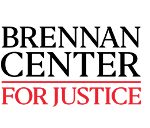 Vote By Mail: New research from The Brennan Center shows that a restrictive voting law in Texas made people less likely to vote for at least two years after having a mail ballot application or ballot rejected. As Brennan showed in 2022, the voters directly harmed by this law were more likely to be nonwhite, raising important questions about the long-term consequences of laws that fall more heavily on minority voters. The state enacted Senate Bill 1 in 2021, ostensibly to reduce widespread voter fraud — which in reality does not exist. The law made casting a ballot by mail more difficult, and it ended practices adopted during the Covid-19 pandemic to make voting easier, such as 24-hour and drive-thru voting. Brennan Center research has already shown that thousands of mail ballot applications and mail ballots were rejected during the 2022 primary due to S.B. 1 and that nonwhite voters were disproportionately impacted. A new working paper from the Brennan Center along with Michael G. Miller and Ian Shapiro shows that voters whose applications and ballots were rejected in the primary were considerably less likely to vote in the 2022 general election and the 2024 primary. And those who did vote often shifted from mail to in-person voting. When voters use these less-preferred voting methods, this can impose time and travel costs on them. It can also make them less likely to vote in the future, as these policies and practices have increased the “cost” of casting a ballot for them. The new paper, which has been conditionally accepted for publication by the Journal of Politics, sheds new light on just how prolonged the negative effects of restrictive voting policies can be. Looking at the harmful impact in a single election misses how such policies can dampen turnout for years to come, even among relatively engaged voters like primary election participants. What’s more, focusing on turnout alone — and not the costs voters bear when they switch away from their preferred method of casting a ballot — understates the negative effects of such policies.
Vote By Mail: New research from The Brennan Center shows that a restrictive voting law in Texas made people less likely to vote for at least two years after having a mail ballot application or ballot rejected. As Brennan showed in 2022, the voters directly harmed by this law were more likely to be nonwhite, raising important questions about the long-term consequences of laws that fall more heavily on minority voters. The state enacted Senate Bill 1 in 2021, ostensibly to reduce widespread voter fraud — which in reality does not exist. The law made casting a ballot by mail more difficult, and it ended practices adopted during the Covid-19 pandemic to make voting easier, such as 24-hour and drive-thru voting. Brennan Center research has already shown that thousands of mail ballot applications and mail ballots were rejected during the 2022 primary due to S.B. 1 and that nonwhite voters were disproportionately impacted. A new working paper from the Brennan Center along with Michael G. Miller and Ian Shapiro shows that voters whose applications and ballots were rejected in the primary were considerably less likely to vote in the 2022 general election and the 2024 primary. And those who did vote often shifted from mail to in-person voting. When voters use these less-preferred voting methods, this can impose time and travel costs on them. It can also make them less likely to vote in the future, as these policies and practices have increased the “cost” of casting a ballot for them. The new paper, which has been conditionally accepted for publication by the Journal of Politics, sheds new light on just how prolonged the negative effects of restrictive voting policies can be. Looking at the harmful impact in a single election misses how such policies can dampen turnout for years to come, even among relatively engaged voters like primary election participants. What’s more, focusing on turnout alone — and not the costs voters bear when they switch away from their preferred method of casting a ballot — understates the negative effects of such policies.
Ballot Measures, Legislation & Rulemaking
 Federal Legislation: Senator Ron Wyden (D-Oregon) reintroduced a bill last week that could change the way Americans vote across the United States. Initially introduced by Wyden in 2017, the Vote at Home Act would give eligible voters the option to vote by mail (including via drop-off site), provide pre-paid envelopes to return ballots and would automatically register citizens to vote at DMVs. Under the bill, voters who live in states with in-person, same-day voter registration would still have the option to vote at a polling station. The Vote at Home Act would also send ballots in the mail weeks ahead of Election Day, while providing funding for the United States Postal Service to cover costs associated with mailing ballots to and from voters. “Taking off work to vote in person – often waiting in long lines for hours – isn’t an option for so many voters. Voting is a fundamental constitutional right. It should be easy, and bringing the Oregon Way of vote-at-home nationwide will guarantee that every eligible voter can make their voices heard,” Wyden said in a press release. Wyden is joined by several Democratic colleagues backing the bill, including Sens. Jeff Merkley (D-OR), Maria Cantwell (D-WA), Cory Booker (D-NJ) and Elizabeth Warren (D-Mass). “Voting by mail has worked in Oregon for years. It’s quick and secure—helping folks in red, blue, and purple states safely make their voices heard in our elections,” Sen. Jeff Merkley said. “This shouldn’t be a partisan issue. Expanding vote by mail nationwide is a secure way to ensure all eligible voters can exercise this constitutional right.”
Federal Legislation: Senator Ron Wyden (D-Oregon) reintroduced a bill last week that could change the way Americans vote across the United States. Initially introduced by Wyden in 2017, the Vote at Home Act would give eligible voters the option to vote by mail (including via drop-off site), provide pre-paid envelopes to return ballots and would automatically register citizens to vote at DMVs. Under the bill, voters who live in states with in-person, same-day voter registration would still have the option to vote at a polling station. The Vote at Home Act would also send ballots in the mail weeks ahead of Election Day, while providing funding for the United States Postal Service to cover costs associated with mailing ballots to and from voters. “Taking off work to vote in person – often waiting in long lines for hours – isn’t an option for so many voters. Voting is a fundamental constitutional right. It should be easy, and bringing the Oregon Way of vote-at-home nationwide will guarantee that every eligible voter can make their voices heard,” Wyden said in a press release. Wyden is joined by several Democratic colleagues backing the bill, including Sens. Jeff Merkley (D-OR), Maria Cantwell (D-WA), Cory Booker (D-NJ) and Elizabeth Warren (D-Mass). “Voting by mail has worked in Oregon for years. It’s quick and secure—helping folks in red, blue, and purple states safely make their voices heard in our elections,” Sen. Jeff Merkley said. “This shouldn’t be a partisan issue. Expanding vote by mail nationwide is a secure way to ensure all eligible voters can exercise this constitutional right.”
 Delaware: A slate of voting rights bills advanced in the General Assembly, bringing Delaware one step closer to constitutionalizing early, mail-in and permanent absentee voting among other election-related bills. Mail-in voting, same-day voter registration, permanent absentee voting and early voting have all been struck down by Delaware courts in recent years. Only early voting and permanent absentee voting returned after the Delaware Supreme Court found the plaintiffs in that case lacked proper standing, but the merits of the case remain untouched. This prompted State Sen. Darius Brown (D-New Castle) to introduce a constitutional amendment addressing those two voting procedures — along with mail-in voting — last year, but with Republicans claiming support only for early voting and not permanent absentee or mail-in voting, the amendment failed. Brown is trying again this year, this time with two separate amendments: one for early voting and one for absentee voting. The two amendments have already cleared the State Senate. Constitutionalizing early voting received full bipartisan support, but the absentee voting amendment only received Republican support from State Sen. Eric Buckson (R-Dover). The two bills were heard in the House Administration Committee last week. The early voting amendment was released from committee unanimously, but the absentee voting amendment only received support from Democratic leadership. Both amendments will need support from at least one Republican to clear the House, and if passed, they will need to be reintroduced in 2026 and succeed again to be added to the constitution.
Delaware: A slate of voting rights bills advanced in the General Assembly, bringing Delaware one step closer to constitutionalizing early, mail-in and permanent absentee voting among other election-related bills. Mail-in voting, same-day voter registration, permanent absentee voting and early voting have all been struck down by Delaware courts in recent years. Only early voting and permanent absentee voting returned after the Delaware Supreme Court found the plaintiffs in that case lacked proper standing, but the merits of the case remain untouched. This prompted State Sen. Darius Brown (D-New Castle) to introduce a constitutional amendment addressing those two voting procedures — along with mail-in voting — last year, but with Republicans claiming support only for early voting and not permanent absentee or mail-in voting, the amendment failed. Brown is trying again this year, this time with two separate amendments: one for early voting and one for absentee voting. The two amendments have already cleared the State Senate. Constitutionalizing early voting received full bipartisan support, but the absentee voting amendment only received Republican support from State Sen. Eric Buckson (R-Dover). The two bills were heard in the House Administration Committee last week. The early voting amendment was released from committee unanimously, but the absentee voting amendment only received support from Democratic leadership. Both amendments will need support from at least one Republican to clear the House, and if passed, they will need to be reintroduced in 2026 and succeed again to be added to the constitution.
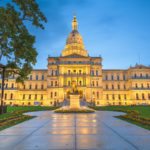 Michigan: The Republican-controlled House voted May 22 to hold Democratic Secretary of State Jocelyn Benson in contempt of the chamber and authorize litigation against her office after Benson failed to comply fully with a subpoena seeking election training materials for training clerks. “The statute is crystal clear,” said state Rep. Jay DeBoyer, a Clay Township Republican who leads the House Oversight Committee. “When a subpoena is issued, they must provide documents, they must provide testimony. That has been stonewalled for seven months. We’ve been extremely patient.” The resolution holding Benson in contempt passed along party lines, 58-47. Benson said she has complied in good faith with House Oversight Committee subpoenas that requested the state’s election training manuals, and that their vote on the House floor to hold her in contempt was a political stunt. “We have repeatedly asked the members of this committee to meet with us over the last several months, but they have refused,” Benson said. “Now my office has released documents to the House Oversight Committee five times. We have turned over more than 3,300 pages of election documents to this committee and to the public on our department’s website. So, if … House Republicans want to go to court over this, we will see them in court.”
Michigan: The Republican-controlled House voted May 22 to hold Democratic Secretary of State Jocelyn Benson in contempt of the chamber and authorize litigation against her office after Benson failed to comply fully with a subpoena seeking election training materials for training clerks. “The statute is crystal clear,” said state Rep. Jay DeBoyer, a Clay Township Republican who leads the House Oversight Committee. “When a subpoena is issued, they must provide documents, they must provide testimony. That has been stonewalled for seven months. We’ve been extremely patient.” The resolution holding Benson in contempt passed along party lines, 58-47. Benson said she has complied in good faith with House Oversight Committee subpoenas that requested the state’s election training manuals, and that their vote on the House floor to hold her in contempt was a political stunt. “We have repeatedly asked the members of this committee to meet with us over the last several months, but they have refused,” Benson said. “Now my office has released documents to the House Oversight Committee five times. We have turned over more than 3,300 pages of election documents to this committee and to the public on our department’s website. So, if … House Republicans want to go to court over this, we will see them in court.”
 Nevada: Gov. Joe Lombardo (R) vetoed a proposal aimed at expanding ballot dropboxes. The proposal, Assembly Bill 306, would have required Clark County to establish 10 drop boxes be available between the end of early voting and the day before Election Day. The bill included smaller numbers for other counties. The proposal passed the Nevada Senate along party lines and in the Nevada Assembly with one Republican joining Democrats. “Nevada is already among the easiest states in the nation to cast a vote,” Lombardo wrote in his veto message Thursday. “AB 306 appears to be well-intentioned but falls short of its stated goals while failing to guarantee appropriate oversight of the proposed ballot boxes or the ballots cast. I believe additional election reforms should be considered as part of a larger effort to improve election security, integrity and allow Nevada to declare winners more quickly.” Nevada state law requires all mail-in ballots to be mailed and postmarked by Election Day. There is then a four-day period after Election Day when county clerks can accept the postmarked ballots and process them. If the ballot does not have a postmark, county clerks can process ballots up to three days after Election Day.
Nevada: Gov. Joe Lombardo (R) vetoed a proposal aimed at expanding ballot dropboxes. The proposal, Assembly Bill 306, would have required Clark County to establish 10 drop boxes be available between the end of early voting and the day before Election Day. The bill included smaller numbers for other counties. The proposal passed the Nevada Senate along party lines and in the Nevada Assembly with one Republican joining Democrats. “Nevada is already among the easiest states in the nation to cast a vote,” Lombardo wrote in his veto message Thursday. “AB 306 appears to be well-intentioned but falls short of its stated goals while failing to guarantee appropriate oversight of the proposed ballot boxes or the ballots cast. I believe additional election reforms should be considered as part of a larger effort to improve election security, integrity and allow Nevada to declare winners more quickly.” Nevada state law requires all mail-in ballots to be mailed and postmarked by Election Day. There is then a four-day period after Election Day when county clerks can accept the postmarked ballots and process them. If the ballot does not have a postmark, county clerks can process ballots up to three days after Election Day.
The Senate unanimously passed a bipartisan bill aimed at enhancing the mail ballot process. Sponsored by Republican Minority Leader Greg Hafen, the legislation, known as AB148, mandates that sample ballots be distributed to registered voters before the actual mail ballots are sent out. The bill specifies that mail ballots must be sent within a designated one-week timeframe. Additionally, it requires county or city clerks to ensure that sample ballots reach voters before the deadline for distributing mail ballots. The bill now returns to the state assembly for approval of an amendment before it can be sent to Governor Joe Lombardo for consideration.
Nonpartisan voters could soon be allowed to vote for major party candidates in state and presidential primaries under a bill introduced by a top state lawmaker this week. In what is likely the most consequential election proposal so far this legislative session, Assembly Speaker Steve Yeager (D-Las Vegas) introduced AB597, which would significantly expand the voting options of nonpartisans, who make up the largest voting bloc in Nevada but are left out of participating in Republican and Democratic primaries. The bill comes with one week left of the session, a time when last-minute introductions by major lawmakers are typically the sign of a deal that has been struck between legislative power players. Asked by The Nevada Independent why the proposal was only just introduced, Yeager said “we had some things to get done first.” “It’s just time to make sure that nonpartisans and non-affiliated voters can vote in partisan elections,” Yeager said. “It’s something I’ve been thinking about for a while.”
 Ohio: An Ohio bill would restrict government entities from discussing ballot information during the 30 days before the election. This would prohibit school districts from acknowledging their levies while early voting occurs. Voter education is an important step in passing school levies, and advocates are worried about a new House bill that would limit communication ahead of elections. “They have 11 other months of the year to provide information to their citizens,” state Rep. Adam Mathews (R-Lebanon) said. Mathews and state Rep. Tex Fischer (R-Boardman) introduced H.B. 264, which would prohibit government entities from referring to — even without saying how to vote — on a levy, bond issue or candidate during early voting, the 30 days before an election. “Making sure that their taxpayer dollars are used for the governing of their entities rather than influencing elections,” Mathews continued. Current law already bans public jurisdictions from taking partisan stances on issues. This would extend that provision to now prohibit the agency from providing information, explanation or viewing. The following would be prohibited from being sent by a government entity in the 30 days before the election: a notice, placard, advertisement, brochure, flyer, direct mailer, newsletter, electronic message, internet article or advertisement, or other form of general publication that communicates information about the plans, policies, and operations of a state agency, political subdivision, or public official to members of the public. This doesn’t include individual correspondence with a constituent. Some candidates, if they already hold a public office, could send excessive mailers to keep their name top of mind, he added. State lawmakers already have this prohibition.
Ohio: An Ohio bill would restrict government entities from discussing ballot information during the 30 days before the election. This would prohibit school districts from acknowledging their levies while early voting occurs. Voter education is an important step in passing school levies, and advocates are worried about a new House bill that would limit communication ahead of elections. “They have 11 other months of the year to provide information to their citizens,” state Rep. Adam Mathews (R-Lebanon) said. Mathews and state Rep. Tex Fischer (R-Boardman) introduced H.B. 264, which would prohibit government entities from referring to — even without saying how to vote — on a levy, bond issue or candidate during early voting, the 30 days before an election. “Making sure that their taxpayer dollars are used for the governing of their entities rather than influencing elections,” Mathews continued. Current law already bans public jurisdictions from taking partisan stances on issues. This would extend that provision to now prohibit the agency from providing information, explanation or viewing. The following would be prohibited from being sent by a government entity in the 30 days before the election: a notice, placard, advertisement, brochure, flyer, direct mailer, newsletter, electronic message, internet article or advertisement, or other form of general publication that communicates information about the plans, policies, and operations of a state agency, political subdivision, or public official to members of the public. This doesn’t include individual correspondence with a constituent. Some candidates, if they already hold a public office, could send excessive mailers to keep their name top of mind, he added. State lawmakers already have this prohibition.
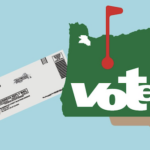 Oregon Ballot Measure: A 2026 ballot initiative that would end Oregon’s first-in-the-nation vote-by-mail system passed a key milestone May 16, when the Oregon Department of Justice published a certified ballot title, following public input on an earlier draft. The certified title “prohibits vote-by-mail elections,” requires “proof of citizenship” for voter registration, and mandates “valid” photo identification to vote. The title is now subject to challenge by anyone who objects to the title’s wording between now and June 2. For measures that are likely to be contested, such as IP 37, that appeal process can be a game of political football as interested parties seek the wording they think will resonate most with voters. “I’m happy with the ballot title,” Ben Edtl, one of three chief petitioners hoping to end vote by mail, told Willamette Week. “It’s important to note that our proposed constitutional amendment allows for verified absentee ballots to continue to vote by mail, including military, people with disabilities, and elderly who may not be able to cast their votes in person.”
Oregon Ballot Measure: A 2026 ballot initiative that would end Oregon’s first-in-the-nation vote-by-mail system passed a key milestone May 16, when the Oregon Department of Justice published a certified ballot title, following public input on an earlier draft. The certified title “prohibits vote-by-mail elections,” requires “proof of citizenship” for voter registration, and mandates “valid” photo identification to vote. The title is now subject to challenge by anyone who objects to the title’s wording between now and June 2. For measures that are likely to be contested, such as IP 37, that appeal process can be a game of political football as interested parties seek the wording they think will resonate most with voters. “I’m happy with the ballot title,” Ben Edtl, one of three chief petitioners hoping to end vote by mail, told Willamette Week. “It’s important to note that our proposed constitutional amendment allows for verified absentee ballots to continue to vote by mail, including military, people with disabilities, and elderly who may not be able to cast their votes in person.”
 Texas: A bill that would have required documented proof of citizenship from Texas voters appears likely dead after it missed a key House deadline this week. Senate Bill 16 had 50 Republican co-sponsors in the House, and supporters widely expected it to sail through the chamber. The bill passed the Senate last month along party lines and with little debate. Republicans and allied groups around the country have been aggressively pushing for such citizenship proof measures at the state and federal level. SB 16 and its companion, House Bill 5337, were among the most sweeping proof-of-citizenship proposals introduced anywhere in the country, applying not only to new applicants for voter registration but also retroactively to 18.6 million voters already registered in the state. Under the bill, voters who failed to provide proof of citizenship would have been allowed to cast ballots only in congressional races — and would have been barred from voting by mail. According to Votebeat, Gov. Greg Abbott could still call a special session on the issue, and Republicans are moving forward with a plan to ask voters to approve a constitutional amendment affirming that only U.S. citizens are permitted to vote in Texas — something already established under Texas law. On May 26, Abbott signed a bill to add the measure to the ballot in the November constitutional amendment election. The proposed amendment does not include the enforcement and maintenance provisions to check for citizenship that were included in SB 16.
Texas: A bill that would have required documented proof of citizenship from Texas voters appears likely dead after it missed a key House deadline this week. Senate Bill 16 had 50 Republican co-sponsors in the House, and supporters widely expected it to sail through the chamber. The bill passed the Senate last month along party lines and with little debate. Republicans and allied groups around the country have been aggressively pushing for such citizenship proof measures at the state and federal level. SB 16 and its companion, House Bill 5337, were among the most sweeping proof-of-citizenship proposals introduced anywhere in the country, applying not only to new applicants for voter registration but also retroactively to 18.6 million voters already registered in the state. Under the bill, voters who failed to provide proof of citizenship would have been allowed to cast ballots only in congressional races — and would have been barred from voting by mail. According to Votebeat, Gov. Greg Abbott could still call a special session on the issue, and Republicans are moving forward with a plan to ask voters to approve a constitutional amendment affirming that only U.S. citizens are permitted to vote in Texas — something already established under Texas law. On May 26, Abbott signed a bill to add the measure to the ballot in the November constitutional amendment election. The proposed amendment does not include the enforcement and maintenance provisions to check for citizenship that were included in SB 16.
 Wisconsin Rulemaking: The Wisconsin Elections Commission says small communities don’t need the state’s permission to stop using electronic voting machines, siding with a northwestern Wisconsin town that switched to hand-counted, paper ballots last year. The WEC decision means municipalities still must make at least one electronic voting machine available at polling places for voters with disabilities. In a 5-1 decision, commissioners dismissed a complaint alleging the Rusk County town of Thornapple broke state law when it switched from voting tabulators to hand-counted paper ballots for April and August elections in 2024. The town’s decision spurred two complaints with the elections commission and a federal lawsuit from the U.S Department of Justice, which is currently being appealed. During a meeting this week, commission staff said they found no probable cause to believe Thornapple broke state law by discontinuing the use of electronic voting machines.
Wisconsin Rulemaking: The Wisconsin Elections Commission says small communities don’t need the state’s permission to stop using electronic voting machines, siding with a northwestern Wisconsin town that switched to hand-counted, paper ballots last year. The WEC decision means municipalities still must make at least one electronic voting machine available at polling places for voters with disabilities. In a 5-1 decision, commissioners dismissed a complaint alleging the Rusk County town of Thornapple broke state law when it switched from voting tabulators to hand-counted paper ballots for April and August elections in 2024. The town’s decision spurred two complaints with the elections commission and a federal lawsuit from the U.S Department of Justice, which is currently being appealed. During a meeting this week, commission staff said they found no probable cause to believe Thornapple broke state law by discontinuing the use of electronic voting machines.
Legal Updates
 California: Former Irvine City Councilwoman Tammy Kim is facing 11 criminal charges from OC District Attorney Todd Spitzer, alleging Kim lied about where she was living during two separate elections and illegally cast her vote in the 2024 election from an address she never lived at. Kim said she would be entering a plea of not guilty at her arraignment but declined to comment further under advice from her lawyer. In a news release, prosecutors allege Kim perjured herself repeatedly by claiming she lived at multiple addresses in the city’s fifth district while she was actually living elsewhere in the city. Under Irvine’s city council districts, it’s illegal for a candidate to run for office in a district they don’t live in. City voters are also only able to cast their ballot for a city council member in the district they reside in.
California: Former Irvine City Councilwoman Tammy Kim is facing 11 criminal charges from OC District Attorney Todd Spitzer, alleging Kim lied about where she was living during two separate elections and illegally cast her vote in the 2024 election from an address she never lived at. Kim said she would be entering a plea of not guilty at her arraignment but declined to comment further under advice from her lawyer. In a news release, prosecutors allege Kim perjured herself repeatedly by claiming she lived at multiple addresses in the city’s fifth district while she was actually living elsewhere in the city. Under Irvine’s city council districts, it’s illegal for a candidate to run for office in a district they don’t live in. City voters are also only able to cast their ballot for a city council member in the district they reside in.
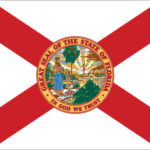 Florida: “Fear and uncertainty” about a new law targeting the state’s ballot-initiative process has led to a significant drop in people working to collect signatures for 2026 ballot measures, groups challenging the law told Chief U.S. District Judge Mark Walker on May 22. One of the most-controversial parts of the law, passed by the Republican-controlled Legislature on May 2 and immediately signed by Gov. Ron DeSantis, shortens from 30 to 10 days the length of time to submit signed petitions to supervisors of elections. In addition, the law (HB 1205) includes hefty fines for petitions that are filed late and makes it a felony for petition gatherers to retain voters’ personal information on petitions or make changes to completed petitions. Groups accused of “substantial irregularities” in the petition process could face racketeering charges. Ballot initiative groups asked Walker for a preliminary injunction to block parts of the law, including the 10-day deadline. Lawyers for the groups argue in part, that the provisions unconstitutionally “chill” political speech. The shortened time frame to submit petitions combined with the risk of fines for late submissions have erected an “insurmountable barrier” for placement of initiatives on the 2026 ballot, Nicholas Steiner, an attorney with the Southern Poverty Law Center who represents Florida Decides Healthcare, told Walker. “It’s making it impossible, really, for FDH (Florida Decides Healthcare) to engage with the target audience,” he said. The 10-day turnaround “has zero relation to fighting fraud or preserving ballot integrity,” Glenn Burhans, an attorney for Smart & Safe Florida, argued. The purpose of the quick turnaround “is to squash the initiative process, pure and simple. It’s stamping on speech,” Burhans said.
Florida: “Fear and uncertainty” about a new law targeting the state’s ballot-initiative process has led to a significant drop in people working to collect signatures for 2026 ballot measures, groups challenging the law told Chief U.S. District Judge Mark Walker on May 22. One of the most-controversial parts of the law, passed by the Republican-controlled Legislature on May 2 and immediately signed by Gov. Ron DeSantis, shortens from 30 to 10 days the length of time to submit signed petitions to supervisors of elections. In addition, the law (HB 1205) includes hefty fines for petitions that are filed late and makes it a felony for petition gatherers to retain voters’ personal information on petitions or make changes to completed petitions. Groups accused of “substantial irregularities” in the petition process could face racketeering charges. Ballot initiative groups asked Walker for a preliminary injunction to block parts of the law, including the 10-day deadline. Lawyers for the groups argue in part, that the provisions unconstitutionally “chill” political speech. The shortened time frame to submit petitions combined with the risk of fines for late submissions have erected an “insurmountable barrier” for placement of initiatives on the 2026 ballot, Nicholas Steiner, an attorney with the Southern Poverty Law Center who represents Florida Decides Healthcare, told Walker. “It’s making it impossible, really, for FDH (Florida Decides Healthcare) to engage with the target audience,” he said. The 10-day turnaround “has zero relation to fighting fraud or preserving ballot integrity,” Glenn Burhans, an attorney for Smart & Safe Florida, argued. The purpose of the quick turnaround “is to squash the initiative process, pure and simple. It’s stamping on speech,” Burhans said.
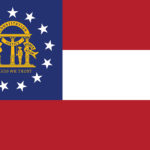 Georgia: The Georgia Bureau of Investigation (GBI) has finished its investigation into election interference in Camilla. According to a release, South Georgia Circuit District Attorney Joseph K. Mulholland requested the GBI investigate allegations of election interference for the City of Camilla’s municipal election held on Tuesday, Nov. 5, 2024. Camilla Mayor Kelvin Owens, Cheryl Ford and Rhunette Williford have collectively been indicted on six counts of “interference with elections,” four counts of conspiracy to commit election fraud and three counts of failure of public or political officer to perform duty. This comes after the GBI began an investigation into Mayor Kelvin Owens locking the doors on Election Day — November 5, 2024 — causing voting to start in the afternoon. This comes after a grand jury found that Owens, Ford and Williford conspired to quote, “prevent elections from occurring on November 5, 2024, contrary to the laws of said State, the good order, peace and dignity thereof.” The indictment went on to say that Cherly Ford’s decision to resign the day before was to stop voters from voting.
Georgia: The Georgia Bureau of Investigation (GBI) has finished its investigation into election interference in Camilla. According to a release, South Georgia Circuit District Attorney Joseph K. Mulholland requested the GBI investigate allegations of election interference for the City of Camilla’s municipal election held on Tuesday, Nov. 5, 2024. Camilla Mayor Kelvin Owens, Cheryl Ford and Rhunette Williford have collectively been indicted on six counts of “interference with elections,” four counts of conspiracy to commit election fraud and three counts of failure of public or political officer to perform duty. This comes after the GBI began an investigation into Mayor Kelvin Owens locking the doors on Election Day — November 5, 2024 — causing voting to start in the afternoon. This comes after a grand jury found that Owens, Ford and Williford conspired to quote, “prevent elections from occurring on November 5, 2024, contrary to the laws of said State, the good order, peace and dignity thereof.” The indictment went on to say that Cherly Ford’s decision to resign the day before was to stop voters from voting.
 Maryland: Five politically unaffiliated Maryland voters sued the state Board of Elections this week, claiming that taxpayer funding of closed primary elections in which they can’t vote violates their constitutional rights. In Maryland, Democratic and Republican primary elections are “partially closed.” The state’s nearly 1 million unaffiliated, Green Party and Libertarian voters may only participate in major party primary elections with permission from the respective party, even though they help fund them, according to state law. This includes the recent March 4 special primary election in Prince George’s County, estimated by election officials to cost county taxpayers $2 million. The lawsuit seeks to stop the state from funding closed primary elections. The lawsuit claims that election officials are violating Article 1, Section 1 of the state constitution, which guarantees that every qualified U.S. citizen who is a resident of Maryland “shall be entitled to vote in the ward or election district in which the citizen resides at all elections to be held in this State.” The plaintiffs, also backed by the Open Primaries Education Fund, claim the state is additionally violating Articles 7 and 24 of Maryland’s Declaration of Rights, under the Free Elections Clause and the Equal Protection Clause. The lawsuit was filed in the Circuit Court of Anne Arundel County on May 27. The plaintiffs are registered voters residing in Baltimore City, Anne Arundel, Prince George’s and St. Mary’s counties.
Maryland: Five politically unaffiliated Maryland voters sued the state Board of Elections this week, claiming that taxpayer funding of closed primary elections in which they can’t vote violates their constitutional rights. In Maryland, Democratic and Republican primary elections are “partially closed.” The state’s nearly 1 million unaffiliated, Green Party and Libertarian voters may only participate in major party primary elections with permission from the respective party, even though they help fund them, according to state law. This includes the recent March 4 special primary election in Prince George’s County, estimated by election officials to cost county taxpayers $2 million. The lawsuit seeks to stop the state from funding closed primary elections. The lawsuit claims that election officials are violating Article 1, Section 1 of the state constitution, which guarantees that every qualified U.S. citizen who is a resident of Maryland “shall be entitled to vote in the ward or election district in which the citizen resides at all elections to be held in this State.” The plaintiffs, also backed by the Open Primaries Education Fund, claim the state is additionally violating Articles 7 and 24 of Maryland’s Declaration of Rights, under the Free Elections Clause and the Equal Protection Clause. The lawsuit was filed in the Circuit Court of Anne Arundel County on May 27. The plaintiffs are registered voters residing in Baltimore City, Anne Arundel, Prince George’s and St. Mary’s counties.
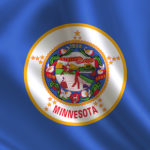 Minnesota: Danielle Miller, 40, of Nashwauk has pleaded not guilty to three felony counts of absentee voter fraud. Millerallegedly attempted to vote for her dead mother before the November election. Miller was charged in October with two counts of intentionally making or signing a false certificate and one count of casting an illegal vote. Each charge carries a maximum sentence of five years in prison, a $10,000 fine or both. The Itasca County Auditor’s Office flagged the ballots for fraud based on the signatures. According to the criminal complaint, Miller told an Itasca County sheriff’s lieutenant she filled out her mother’s ballot, signed her mother’s name on the envelope and signed her mother’s name as a witness on her own ballot. Miller allegedly said her mother was “an avid Donald Trump supporter” and wanted to vote for him, but died before their ballots came. According to the Minnesota Vital Statistics Death Report of Itasca County, Miller’s mother died Aug. 31. Miller’s next appearance is in August.
Minnesota: Danielle Miller, 40, of Nashwauk has pleaded not guilty to three felony counts of absentee voter fraud. Millerallegedly attempted to vote for her dead mother before the November election. Miller was charged in October with two counts of intentionally making or signing a false certificate and one count of casting an illegal vote. Each charge carries a maximum sentence of five years in prison, a $10,000 fine or both. The Itasca County Auditor’s Office flagged the ballots for fraud based on the signatures. According to the criminal complaint, Miller told an Itasca County sheriff’s lieutenant she filled out her mother’s ballot, signed her mother’s name on the envelope and signed her mother’s name as a witness on her own ballot. Miller allegedly said her mother was “an avid Donald Trump supporter” and wanted to vote for him, but died before their ballots came. According to the Minnesota Vital Statistics Death Report of Itasca County, Miller’s mother died Aug. 31. Miller’s next appearance is in August.
 North Carolina: A divided North Carolina Supreme Court confirmed last week that it was OK for a new law that shifted the power to appoint State Board of Elections members away from the Democratic governor to start being enforced earlier this month, even as the law’s constitutionality is deliberated. The Republican majority on the court declined or dismissed requests that Gov. Josh Stein made three weeks ago to block for now the enforcement of the law approved last year by the GOP-controlled General Assembly shifting authority to Republican State Auditor Dave Boliek. In late April, some trial judges hearing Stein’s lawsuit declared the law unconstitutional and said the law couldn’t be carried out. But on April 30 — the day before the board’s five appointments made by Boliek would otherwise begin their terms — a panel on the intermediate-level state Court of Appeals ruled the law could still be carried out while broader legal questions surrounding the power shift are reviewed on appeal. Stein’s attorneys later that day asked the Supreme Court to intervene and keep blocking the law. But the justices didn’t weigh in publicly until now, effectively handing a legal victory to GOP legislative leaders who for years had wanted to wrest board control from Democratic governors.
North Carolina: A divided North Carolina Supreme Court confirmed last week that it was OK for a new law that shifted the power to appoint State Board of Elections members away from the Democratic governor to start being enforced earlier this month, even as the law’s constitutionality is deliberated. The Republican majority on the court declined or dismissed requests that Gov. Josh Stein made three weeks ago to block for now the enforcement of the law approved last year by the GOP-controlled General Assembly shifting authority to Republican State Auditor Dave Boliek. In late April, some trial judges hearing Stein’s lawsuit declared the law unconstitutional and said the law couldn’t be carried out. But on April 30 — the day before the board’s five appointments made by Boliek would otherwise begin their terms — a panel on the intermediate-level state Court of Appeals ruled the law could still be carried out while broader legal questions surrounding the power shift are reviewed on appeal. Stein’s attorneys later that day asked the Supreme Court to intervene and keep blocking the law. But the justices didn’t weigh in publicly until now, effectively handing a legal victory to GOP legislative leaders who for years had wanted to wrest board control from Democratic governors.
The U.S. Department of Justice sued the North Carolina State Board of Elections this week, claiming the board violated federal voting law in its handling of voter registration records before the 2024 elections. The state’s election board violated the Help America Vote Act, the Department of Justice said, by using a voter registration form that did not require voters to provide their driver’s license number or last four digits of a Social Security number. This information is required to confirm the voting eligibility of U.S. citizens under federal voting laws. Registrants were then added to the state’s voter registration roll, the DOJ said, without their identifying information being confirmed. The form that the state used, the government said, did not make it clear to registrants that they were required to provide identifying information: required fields had red text, but the boxes for a driver’s license number or the last four of a Social Security number were printed in black. The board also didn’t contact voters who registered using this form to update their information in advance of the 2024 election. The government asked the court to require the elections board to develop a plan to contact and update the information of all registered voters who are missing information in the state’s voter rolls. It also requested that the government then be provided a complete list of corrected records. The state board of elections is still reviewing the complaint, said Sam Hayes, executive director of the North Carolina State Board of Elections.
 North Dakota: The Spirit Lake Nation and Turtle Mountain Band of Chippewa tribes have asked an appeals court to reconsider its ruling that North Dakota lawmakers did not violate the Voting Rights Act when they redrew legislative districts., The tribes, along with several voters, filed a petition for another Eighth Circuit Court of Appeals hearing in their case against the state of North Dakota. The Appeals Court ruled earlier this month that voters cannot file a Voting Rights Act lawsuit based on allegations of racial discrimination. “Two weeks ago, two Eighth Circuit judges ruled that the Voting Rights Act does not create voting rights enforceable by voters in court,” said Mark Gaber, senior director of the Campaign Legal Center. “The full Eighth Circuit should overturn that radical and unlawful ruling, which flouts Supreme Court precedent and congressional intent.” The Campaign Legal Center represented the tribes and voters in the case. The ruling overturned a North Dakota federal judge’s verdict in November 2023 that the North Dakota Legislature diluted the Native American vote when it redistricted its legislative voting map in 2021. Lawmakers put the Turtle Mountain Indian Reservation and the counties of Rolette, Towner and most of Cavalier into District 9. It also drew the Spirit Lake Nation into District 15 with Ramsey County. “We went to court because the map the state passed made it harder for Native voters like me to have a real voice,” said Wes Davis, a Turtle Mountain voter who joined the case. “The court agreed and gave us a fair chance to elect candidates. Now, the Eighth Circuit wants to take away my right to question maps that silence votes, not because we were wrong, but because they say the Voting Rights Act does not create rights.” If the Appeals Court decision stands, only the U.S. Department of Justice can file a Voting Rights Act lawsuit in the Eighth Circuit.
North Dakota: The Spirit Lake Nation and Turtle Mountain Band of Chippewa tribes have asked an appeals court to reconsider its ruling that North Dakota lawmakers did not violate the Voting Rights Act when they redrew legislative districts., The tribes, along with several voters, filed a petition for another Eighth Circuit Court of Appeals hearing in their case against the state of North Dakota. The Appeals Court ruled earlier this month that voters cannot file a Voting Rights Act lawsuit based on allegations of racial discrimination. “Two weeks ago, two Eighth Circuit judges ruled that the Voting Rights Act does not create voting rights enforceable by voters in court,” said Mark Gaber, senior director of the Campaign Legal Center. “The full Eighth Circuit should overturn that radical and unlawful ruling, which flouts Supreme Court precedent and congressional intent.” The Campaign Legal Center represented the tribes and voters in the case. The ruling overturned a North Dakota federal judge’s verdict in November 2023 that the North Dakota Legislature diluted the Native American vote when it redistricted its legislative voting map in 2021. Lawmakers put the Turtle Mountain Indian Reservation and the counties of Rolette, Towner and most of Cavalier into District 9. It also drew the Spirit Lake Nation into District 15 with Ramsey County. “We went to court because the map the state passed made it harder for Native voters like me to have a real voice,” said Wes Davis, a Turtle Mountain voter who joined the case. “The court agreed and gave us a fair chance to elect candidates. Now, the Eighth Circuit wants to take away my right to question maps that silence votes, not because we were wrong, but because they say the Voting Rights Act does not create rights.” If the Appeals Court decision stands, only the U.S. Department of Justice can file a Voting Rights Act lawsuit in the Eighth Circuit.
 West Virginia: Richard Allen Chapman of Huntington has been sentenced for election fraud he committed in the November 2020 General Election. Chapman was charged with illegal voting for casting two ballots in the 2020 General Election–one in person in Wayne County, West Virginia, and the other as an absentee-by-mail ballot in Florida. Prosecuting Attorney Richard Thompson obtained the indictment, and matter was adjudicated by Wayne County Circuit Court Judge James H. Young, Jr. According to the Court’s Order, sufficient evidence exists to find Mr. Chapman guilty of the offense of illegal voting and the Defendant pled “No Contest” to the misdemeanor charge. Chapman was ordered to pay a $250 fine plus court costs. At the time the election fraud was committed the penalty was a misdemeanor. However, during the 2022 Regular Legislative Session, the West Virginia Legislature passed HB 4311 making illegal voting a felony crime punishable by 1-10 years of imprisonment and up to a $10,000 fine.
West Virginia: Richard Allen Chapman of Huntington has been sentenced for election fraud he committed in the November 2020 General Election. Chapman was charged with illegal voting for casting two ballots in the 2020 General Election–one in person in Wayne County, West Virginia, and the other as an absentee-by-mail ballot in Florida. Prosecuting Attorney Richard Thompson obtained the indictment, and matter was adjudicated by Wayne County Circuit Court Judge James H. Young, Jr. According to the Court’s Order, sufficient evidence exists to find Mr. Chapman guilty of the offense of illegal voting and the Defendant pled “No Contest” to the misdemeanor charge. Chapman was ordered to pay a $250 fine plus court costs. At the time the election fraud was committed the penalty was a misdemeanor. However, during the 2022 Regular Legislative Session, the West Virginia Legislature passed HB 4311 making illegal voting a felony crime punishable by 1-10 years of imprisonment and up to a $10,000 fine.
Opinions This Week
National Opinions: 2020 Conspiracies
Connecticut: Ranked choice voting
Florida: Ballot measures
Indiana: Student IDs | Secretary of state
Kansas: Recount legislation
Massachusetts: Ranked choice voting, II
Nevada: Guns at polling places
New Jersey: Early voting
New York: Automatic voter registration | Voting equipment
Ohio: Ranked choice voting
Pennsylvania: Early voting
Upcoming Events
Michigan Association of Municipal Clerks (MAMC) 2025 Annual Conference: When: June 2-6. Where: Muskegon.
Strengthening the Election Workforce: New Tools for Training and Association Development: Join the Election Center, the Bipartisan Policy Center and The Elections Group at noon ET on Tuesday, June 3, for a conversation on two new resources designed to strengthen the election profession from the ground up. We’ll walk through: A Self-Assessment Guide to the Evolution of Election Associations – the first-ever tool for evaluating and growing the capacity of state election official associations, developed by the Coalition of Election Association Leaders (CEAL) and the Election Center. Mapping and Modeling Best Practices in Election Certification and Training Programs – a new guide developed in partnership with the Election Workforce Advisory Council, offering a clear framework for building or improving training and certification programs across the country. We’ll highlight key takeaways, share case studies, and offer ideas for how to use these guides in your own state or organization. When: June 3, 12pm Eastern. Where: Online.
25 Years of Vote at Home with Adrian Fontes: Join The Vote at Home Institute for an insightful discussion on the current state and future of Vote at Home, featuring voices who have played key roles in shaping this system. Hear an update on Vote at Home practices, challenges, and opportunities from Arizona Secretary of State Adrian Fontes. Look back at Oregon’s pioneering Vote at Home system, led by the state’s Secretary of State, Phil Keisling. Finally, the Executive Director of the National Vote at Home Institute will share future opportunities in Vote at Home. When: June 4, 1pm Eastern. Where: Online
130th Annual County and District Clerks’ Association of Texas (TAC) Conference: When: June 8-12. Where: Sugarland.
Election Science, Reform & Administration Summer Conference: The 9th Annual Summer Conference on Election Science, Reform, and Administration (ESRA) will take place from Monday, June 9 through Wednesday, June 11 2025 at Florida State University in Tallahassee, Florida. Planning for the conference is currently underway! Sign up for our mailing list to receive updates as information becomes available, including notifications about conference registration and programming. When: June 9-11. Where: Tallahassee, Florida.
June CERA Courses: The Election Center and Auburn University will be offering four in-person CERA courses in Phoenix, Arizona. The courses offered are: Course 3 (Strategic Planning & Budgeting); Course 7 (Enhancing Voter Participation); Course 11 (History I-Ancients to 1781); and Course 12 (History II-1781 to Modern Era). When: June 9-14. Where: Phoenix.
MACATFO Summer Conference [Minnesota]: When: June 9-13. Where: Brainard.
New Mexico Association of Counties (NMC) Annual Conference: When: June 16-19.
iGO Summer Conference: The International Association of Government Officials will hold their summer conference in Kansas City, Missouri from June 20-24. Please refer to the iGO website for more information and to register for the event.
Georgia Municipal Association-Municipal Election Superintendent 2025 Annual Convention: When: June 20-24. Where: Savannah.
57th Annual Association of Arkansas Counties (AACC) Conference: When: June 25-27. Where: Rogers/Benton County.
Massachusetts Town Clerks Association (MTCA)Conference 2: When: June 26. Where: Plymouth.
Ohio Secretary of State’s Summer Conference: When: June 30-July 1. Where: Columbus.
2025 National Association of Counties Annual Conference & Exposition: The National Association of Counties (NACo) Annual Conference is the premier gathering of elected and appointed officials from the nation’s 3,069 counties, parishes and boroughs. Conference content includes discussion of federal policies impacting counties, workshops lifting up county best practices, engaging general sessions, mobile tours across our host county, and more. NACo members also have the opportunity to influence the association’s direction and future during the Annual Business Meeting on the final day of the conference. When: July 11-14. Where: Philadelphia.
NASED Summer Conference: The National Association of State Election Directors will hold its summer conference in Oklahoma from July 22-24. Please refer to the NASED website for more information and to register for the event.
NASS Summer Conference: The National Association of Secretaries of State will hold its summer conference in Biloxi, Mississippi from August 4-7. Please refer to the NASS website for more information and to register for the event.
National Conference of State Legislatures Summit: NCSL is bringing the Legislative Summit back to Boston! Join us Aug. 4-6 to connect with legislators and staff from across the nation at an event jam-packed with great speakers, eye-opening policy sessions and after-hours experiences at some of Boston’s coolest venues. Help NCSL celebrate its 50th anniversary in style. When: August 4-6. Where: Boston
Election Center Annual Conference: The Election Center Annual Conference will be held in Salt Lake City. The conference will run August 20-22 and CERA courses will be offered August 23 and 24. The CERA courses offered will be: Course 5 (Ethics); Course 6 (Communications & Public Relations); and Two renewal courses to be announced. When: August 20 to 24. Where: Salt Lake City.
Protecting the Election: AI and Governance Conference at WashU: Join us for this two-day in-person research and practitioner conference at WashU on October 16-17, 2025, to discuss research regarding AI and governance and how this applies to U.S. elections. Research topics include how chatbots can be used to engage with voters, how social media influences voters, what the electorate knew (or did not know) about the candidates and issues during recent elections, misinformation in elections, rhetoric about election integrity, and AI strategies for the administration of elections. We will also hear from practitioners during the conferences about their experiences with and needs for AI in recent elections and their intentions for future use of AI in elections. When: Oct. 16-17. Where: St. Louis.
Job Postings This Week
electionlineWeekly publishes election administration job postings each week as a free service to our readers. To have your job listed in the newsletter, please send a copy of the job description, including a web link to mmoretti@electionline.org. Job postings must be received by 5pm on Wednesday in order to appear in the Thursday newsletter. Listings will run for three weeks or till the deadline listed in the posting.
City Clerk, Madison, Wisconsin– Are you ready to take on a high-impact role that defines the heartbeat of Madison’s government? As City Clerk, you’ll be at the helm of critical city operations, ensuring democracy runs smoothly, records are meticulously kept, and policies drive positive change. This isn’t just a job—it’s a mission! This is your chance to lead, plan, and execute diverse programs with precision and purpose. You’ll be the architect of Madison’s election processes, the guardian of official city documents, and the force behind vital licensing and permit systems. Every decision you make will shape the city’s future. Oversee the Clerk’s Office, providing visionary leadership and strategic direction; Ensure seamless elections, developing and implementing processes that uphold integrity; Manage licensing and permits, keeping Madison’s businesses and residents on track; Preserve city records, safeguarding critical documents as the custodian of official information; Support the Common Council, administering and recording proceedings with precision; and Influence policy, collaborating with city managers and leaders to drive impactful initiatives. Salary: $120,778 – $163,050. Deadline: June 23. Application: For the complete job listing and to apply, click here.
Community Engagement Coordinator, North Charleston, South Carolina– Partner with the Community Engagement Manager to identify and expand non-partisan community relationships. Cultivate connections with local businesses and civic organizations to boost visibility and support. Solicit and analyze community feedback to enhance outreach strategies. Create brochures, flyers, presentations, and digital content to educate the public about elections and voting procedures.Collaborate with the Marketing and Communications Manager to maintain clear, consistent, and timely messaging across platforms. Manage and update the outreach section of the agency’s website. Deliver presentations and training during outreach events. Plan and coordinate mid-scale public events such as National Voter Registration Day and poll worker appreciation initiatives. Represent BVRE at outreach events, tabling opportunities, and community meetings. Track outreach activity and report on engagement metrics and outcomes. Support special projects including the “I Voted” sticker contest, Adopt a Polling Location, and poll worker recruitment. Research best practices to enhance and expand outreach programming. Assist in maintaining a centralized repository of outreach materials and resources. Salary: $50,440 – $66,060. Application: For the complete job listing and to apply, click here.
Deputy County Administrator – Finance, Property & License Management, Otter Tail County, Minnesota: Otter Tail County is seeking a full-time Deputy County Administrator. This position will be part of the County Leadership Team overseeing the Finance, Property, and License Management Team and Countywide initiatives such as the Long-Range Strategic Plan. This position is responsible for overseeing and administering the duties and functions of an Auditor-Treasurer including financial operations and policy development, property recordings, assessor, elections, property tax administration, state audits, tax increment financing, property forfeitures, and ensuring compliance with state and federal regulations. This position would fulfill the appointed duties of an Auditor-Treasurer. Under the direction of the County Administrator, the Deputy County Administrator assists in managing and administering the affairs of the county and carrying out the policies of the County Board. This position is responsible to provide oversight in the planning, development, management, coordination, delivery, and evaluation of multiple complex functions of one of four service teams in the county organization. Lead interdepartmental and interagency work teams to improve county service alignment and performance. Priorities include service alignment, leadership and accountability to county-wide board goals. The Deputy County Administrator acts on behalf of the County Administrator in that person’s absence. Deadline: May 30. Application: For the complete job listing and to apply, click here.
Election Administration Manager, Oregon Secretary of State’s Office– In this role you will oversee all aspects of the Division’s work related to the technical administration of elections, including voter registration and election management and oversee all compliance-related aspects of the Division’s work on initiative, referendum, referral, and recall processes, candidate filings and qualifications, voters’ pamphlet filings and production, and translations of the voters’ pamphlet. Salary: $7,430 – $12,068/month. Deadline: June 1. Application: For the complete job listing and to apply, click here.
Election Director III, Baltimore, Maryland–An Election Director III is the supervisory or managerial level of work directing elections in local jurisdictions within the State. The work of this classification may require travel throughout the State to exchange information regarding the election process and promote voter registration. Employees supervise office support staff which may include subordinate supervisors. Employees in this classification receive managerial supervision from the State Administrator or Deputy State Administrator of Election Laws. Employees may be required to work evenings and weekends. Position allocation to the Election Director series is determined by the size of the local jurisdiction as reflected by the number of registered voters. Copies of this supplemental job evaluation standard can be found in the Offices of the State and local Boards of Elections and in the Department of Budget and Management’s Office of Personnel Services and Benefits. Salary: $95,991.00 – $176,552.00/year. Deadline: May 30. Application: For the complete job listing and to apply, click here.
Election Services Manager, Arapahoe County, Colorado– The Election Service Manager performs managerial level administrative, supervisory, and professional work in carrying out a comprehensive public facing service operation. This position specifically supervises the Election Services team, which includes voter service polling center logistics, election/ballot security, ballot processing and election systems maintenance. Salary: $75,424 – $120,484. Deadline: June 15. Application: For the complete job listing and to apply, click here.
Election Specialist, Candidate Services, Palm Beach County, Florida– This position is responsible for the management and execution of services provided to candidates, political committees, electioneering communication organizations, political parties, community development districts, and special taxing districts. This includes establishing and maintaining an organized system for managing the required forms and records associated with filing and qualifying for office, candidate petitions, campaign finance reporting, financial disclosures, initiative petitions, and other related activities. Candidate Services staff must be organized and personable with a great attitude, be able to work well in a team environment, and meet deadlines under pressure. Excellent work ethic, including consistent performance, integrity, reliability, and attendance, is a must. Must be detail-oriented, be able to handle simultaneous projects, and be a self-starter. Salary: $21.63 – $24.04. Application: For the complete job listing and to apply, click here.
Elections Division Manager, Washington County, Minnesota– The Washington County Property Records and Taxpayer Services Department is seeking an experienced and collaborative leader to serve as our Elections Division Manager. We’re looking for a skilled manager with a strong background in election administration, voter registration, process management, or related fields. Experience leading complex operations, managing teams, and ensuring compliance with legal requirements will be highly valued. This position oversees all aspects of elections operations, ensuring compliance with statutory requirements and department objectives while leading a team of full-time and temporary employees to successfully administer federal, state, county, municipal, school district, and special elections. This is an excellent opportunity for a strategic thinker who excels under pressure, values integrity and transparency, and is dedicated to providing exceptional service to the residents of Washington County. Salary: $87,276 – $119,246. Deadline: June 5. Application: For the complete job listing and to apply, click here.
IT Assistant Manager, Palm Beach County, Florida– The Assistant IT Manager plays a supportive role in the smooth operation of the IT department, ensuring that both the technical infrastructure and the team are aligned with the organization’s goals. This position involves collaborating closely with the Election Technology Director to oversee the implementation of technology solutions that meet the needs of the organization. The Assistant IT Manager helps maintain an efficient and effective IT environment. Oversee daily operations of the IT department, including help desk operations and performance, troubleshooting issues, and ensuring efficient workflow. Hold department meetings and provide weekly performance summary. Manage IT projects under the direction of the Election Technology Director, ensuring timely completion, budget requirements, and organizational needs. Enforce IT policies and procedures to ensure data security, network access, and system availability. Assist in the management of IT staff by developing skills, coaching, and communicating job expectations. Coordinate vendor renewals, assist with IT budget development, and manage grant applications. Evaluate and assist in maintaining the organization’s disaster recovery and business continuity plans for IT. Assist with IT Public Records requests research and fulfillment. Assist the Election Technology Director in all facets of IT operations. Lead projects and mentor team members. Application: For the complete job listing and to apply, click here.
Physical Security Specialist, Palm Beach County, Florida– This position is responsible for administration of the physical security programs in a manner consistent with Supervisor of Elections Office policies, procedures, quality standards, and applicable local, state, and federal regulations. These programs include conducting facility security risk assessments, assisting with access control, monitoring alarms and CCTV systems, and providing security related training. Must be organized and personable with a great attitude, be able to work well in a team environment, and meet deadlines under pressure. Excellent work ethic, including consistent performance, integrity, reliability, and attendance, is a must. Candidate must be detail-oriented and understand the importance of security and safety for all. Must be available 24/7 365, be able to handle simultaneous projects, and be a self-starter. Application: For the complete job listing and to apply, click here.
Senior Elections Supervisor, Placer County, California– The Placer County Clerk-Recorder-Elections Office has a current vacancy for a Senior Elections Supervisor. The Office is looking for someone with experience in the development, supervision, and administration of elections programs. The ideal candidate will have supervised in an elections office or similar agency that emphasizes cooperation, accountability and transparency and has the ability to communicate effectively with management, staff, other county departments, jurisdictions and the voters of Placer County. To learn more about the Elections Division of the Clerk-Recorder-Elections Office please click here. In addition to the minimum education and experience, the ideal candidate will possess experience and vision in the following areas: State and federal election laws; Voting systems; General operating policies and functions of the California Secretary of State’s Office; Best practices and current trends in successful election administration, community education and outreach programs; Principles and techniques of effective employee supervision and development, training, management practices and public administration. Salary: $69,056.00 – $86,195.20/year. Application: For the complete job listing and to apply, click here.
Voter Registration and Absentee Manager, Charleston County, South Carolina– Are you driven by public service and committed to ensuring the accuracy of voter registration? Join us as the Voter Registration and Absentee Manager and lead a team dedicated to upholding the integrity of our processes. Welcome to the Board of Voter Registration and Elections, where we are not just an agency, but a dynamic force committed to excellence in democracy. As an award-winning organization, we pride ourselves on our relentless pursuit of improvement to better serve the voters in our community. This role is pivotal to ensuring secure, accurate, and accessible voter registration and absentee voting services. Salary: $70,000.00 – $82,000.00 Annually. Application: For the complete job listing and to apply, click here.
Voter Services Clerk, Seminole County, Florida – The Voter Services Clerk serves as the primary customer service representative for the Seminole County Supervisor of Elections Office. This position is responsible for the accurate maintenance and entry of voter registration information, ensuring the integrity and confidentiality of voter data, and providing essential assistance to voters, including answering inquiries and processing voter-related documents. The Clerk will also be involved in various clerical and administrative tasks associated with voter services, ensuring compliance with applicable state and federal election laws. Responsibilities include processing new voter registrations, updates or changes to existing registrations, vote-by-mail ballot requests, and returns, as well as petition verifications and other voter record-related tasks, providing accurate voter registration and election information to the public in person, by phone, or via mail, in accordance with Florida state laws, regulations, and procedures, conducting research to resolve issues related to voter registration records, utilizing sources both within the voter database and external government websites or online resources, ensuring the accuracy and completeness of voter registration records by verifying information, validating signatures on candidate and initiative petitions, maintaining and update street maintenance files to ensure an up-to-date and accurate residential address database for Seminole County. Salary: $17 – $22 Hourly. Application: For the complete job listing and to apply, click here.
Marketplace
electionline provides no guarantees as to the quality of the items being sold and the accuracy of the information provided about the sale items in the Marketplace. Ads are provided directly by sellers and are not verified by electionline. If you have an ad for Marketplace, please email it to: mmoretti@electionline.org